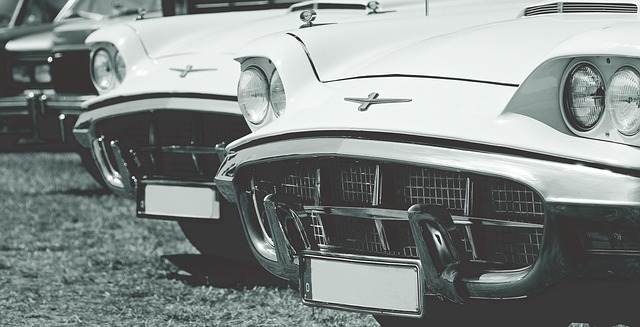Verifying a Vehicle Identification Number (VIN) is essential for assessing a car's legitimacy and history. As a unique code providing detailed manufacturing and ownership information, tampering or falsifying a VIN can lead to legal issues. Los Angeles vehicle owners must use official, accredited services for accurate VIN checks, matching documents like titles and registrations, and adhering to DMV guidelines. Avoid relying on outdated databases or untrustworthy third-party businesses to ensure peace of mind and prevent potential scams during car transactions.
Is your vehicle’s LA VIN verification up to par? In an era where automotive authenticity is paramount, understanding the legal implications of Vehicle Identification Number (VIN) accuracy is crucial. This guide navigates the complexities, from the significance of VINs as unique vehicle identifiers to the severe consequences of falsified or inaccurate data. Learn how to ensure compliance and avoid common mistakes during the verification process for peace of mind on Los Angeles roads.
- Understanding VIN Verification: What is a Vehicle Identification Number?
- The Legal Implications of Inaccurate or Falsified VINs
- How to Ensure Your LA VIN Verification Process is Compliant
- Common Mistakes to Avoid During VIN Verification for Vehicles in Los Angeles
Understanding VIN Verification: What is a Vehicle Identification Number?

The process of verifying VIN (Vehicle Identification Number) is a crucial step in ensuring the legality and authenticity of a vehicle. A VIN is a unique code consisting of 17 characters, including letters and numbers, etched into a metal plate on the vehicle’s chassis. It serves as a digital fingerprint for each car, truck, or SUV, providing critical information about its manufacturing details, specifications, and history.
By verifying VIN, individuals can gain insights into a vehicle’s past, such as its original owner, date of manufacture, and any reported accidents or damages. This is particularly important when purchasing a used vehicle, as it helps buyers avoid potential scams or hidden issues. A legitimate VIN verification process ensures that the vehicle is as represented, offering peace of mind for new and prospective owners alike.
The Legal Implications of Inaccurate or Falsified VINs

The implications of possessing or selling a vehicle with an inaccurate or falsified Vehicle Identification Number (VIN) are severe and far-reaching. VINs serve as unique identifiers for each vehicle, providing critical information about its history, including previous owners, accidents, and repairs. When a VIN is tampered with or falsified, it can lead to serious legal consequences. This act of deception can be considered fraud, as it misrepresents the true state of the vehicle, which in turn can dupe unsuspecting buyers into making significant purchases.
Furthermore, using an inaccurate VIN during the registration process or for insurance claims may result in penalties and legal actions. It can also hinder law enforcement efforts to track stolen vehicles or ensure safety standards are met. The legality of a vehicle is intrinsically linked to its verified VIN, making it a crucial aspect of responsible car ownership and transactions.
How to Ensure Your LA VIN Verification Process is Compliant

To ensure your Los Angeles (LA) Vehicle Identification Number (VIN) verification process is compliant, start by obtaining all necessary documents and records accurately. This includes the vehicle’s title, registration, and any historical maintenance records. Double-check that the VIN on these documents matches the one to be verified. Next, use approved and accredited verification services or tools recognized by the LA Department of Motor Vehicles (DMV). These services should employ advanced technology, such as GPS tracking and digital imaging, for a precise and legitimate verification.
Additionally, stay updated with any relevant laws and regulations governing VIN verification in LA. The DMV regularly revises guidelines to ensure compliance with federal and state standards. Keep your verification methods aligned with these updates to maintain legal integrity. Regularly audit your records and processes to identify any discrepancies or non-compliance issues. This proactive approach not only ensures a smooth verification process but also safeguards against potential penalties for non-compliance.
Common Mistakes to Avoid During VIN Verification for Vehicles in Los Angeles

When it comes to vehicle identification number (VIN) verification in Los Angeles, many owners make avoidable mistakes that can lead to legal issues and costly delays. One common blunder is relying on online databases that may not be up-to-date or accurate. These platforms often lack real-time data, which can result in false information about a vehicle’s history, such as accident reports or outstanding recalls. Always opt for official government-sanctioned verification services for the most reliable results.
Another mistake to steer clear of is neglecting to double-check the VIN itself. Even a minor error in transcription can cause problems during the verification process. Ensure the VIN is entered accurately and precisely, without any typos or alterations. Additionally, be cautious when dealing with third-party businesses offering cheap VIN checks; their legitimacy might be questionable, and they could provide subpar services or sell your data without consent. Always choose reputable, licensed professionals to conduct your vehicle’s VIN verification in LA.
In conclusion, ensuring your vehicle’s legal verification through accurate VIN (Vehicle Identification Number) documentation is paramount in Los Angeles. By understanding the significance of the VIN and its implications on vehicle ownership and safety, you can navigate the process seamlessly. This article has provided insights into common mistakes to avoid and highlighted the importance of compliance during the LA VIN verification process. Remember, a valid and accurate VIN is not just a legal requirement but also ensures your peace of mind as a vehicle owner.



